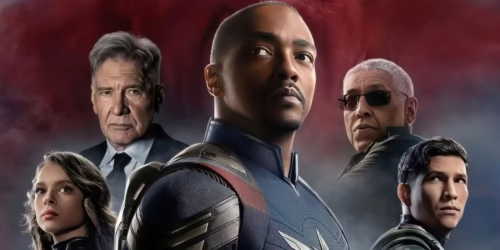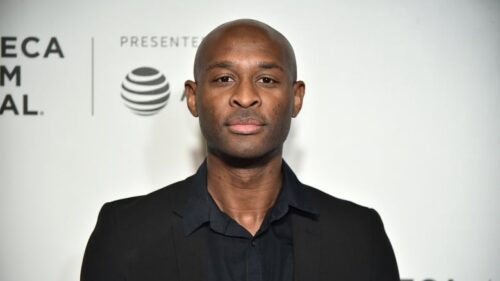
Julius Onah’s journey from Nigeria to Hollywood exemplifies perseverance, talent, and the boundless possibilities of cinema. Born in Makurdi, Nigeria, Onah’s passion for storytelling has propelled him to one of the most coveted roles in filmmaking—directing Marvel Studios’ ‘Captain America: Brave New World.’
His trajectory, from being mesmerized by Hollywood classics as a child to directing Harrison Ford as President Thaddeus Ross, is a remarkable testament to his determination and creative vision.
Onah’s first glimpse of America came through the lens of cinema. In a Variety interview, he recalled being captivated by films like Clear and Present Danger and The Lion King, which deeply influenced him as a young immigrant from Nigeria.
His upbringing was shaped by a diverse cultural background, living in countries such as the Philippines and the United Kingdom before settling in Washington, D.C., when his father, a Nigerian diplomat, relocated the family. This exposure to different cultures enriched his storytelling perspective.
However, when his father was posted to North Korea, financial hardships struck, leaving Onah and his brother to navigate life in the United States on their own. This challenging period only strengthened his resolve to seize every opportunity available.
Onah pursued his passion for storytelling by studying theatre at Wesleyan University and later honing his filmmaking skills at New York University (NYU). It was at NYU that he crossed paths with legendary filmmaker Spike Lee, who quickly recognized his potential. Lee took Onah under his wing, hiring him as an intern and providing invaluable mentorship that would shape his future in the industry.
Before stepping into the Marvel universe, Onah made his mark with independent films that showcased his artistic range and storytelling depth. His early works include ‘The Girl Is in Trouble’ – A crime thriller produced by Spike Lee, ‘Luce’ – A psychological drama that received critical acclaim and ‘The Cloverfield Paradox’ – A sci-fi horror film exploring deep existential themes.
Each project solidified Onah’s reputation as a filmmaker with a unique voice, unafraid to tackle complex narratives. However, directing a Marvel film marked a major leap in his career.
Onah’s latest project, Captain America: Brave New World, is more than just a blockbuster—it’s a reflection of his personal journey and a deeper exploration of American ideals. The film stars Anthony Mackie as Sam Wilson, who has officially taken up the mantle of Captain America, alongside Harrison Ford as President Thaddeus Ross.

For Onah, this story transcends superhero action. “It’s not about whether Sam Wilson has the super-soldier serum,” he explained. “It’s about what we all have within us.” His approach aims to highlight themes of unity, empathy, and resilience—values that resonate deeply with his own experiences as an immigrant-turned-American citizen.
Onah is determined to use Captain America: Brave New World as a platform to foster meaningful dialogue about division, hope, and reconciliation in modern society. In an interview with Vanity Fair, he shared one of the film’s most impactful lines, “If we can’t see the good in each other, we’ve already lost the fight.”
This statement emphasizes his commitment to storytelling that not only entertains but also inspires audiences to reflect on the importance of finding common ground in a fractured world.
Onah’s career represents the true spirit of the American Dream, proving that talent and perseverance can open doors to the highest levels of success. His work continues to emphasize the unifying power of film, allowing audiences from all walks of life to share in the magic of storytelling.
With Captain America: Brave New World, Onah isn’t just directing a superhero film—he’s crafting a narrative that speaks to the heart of what it means to believe in a better world.


